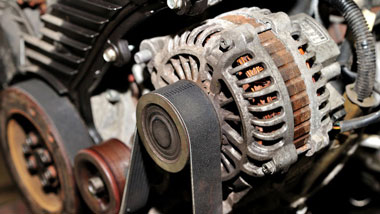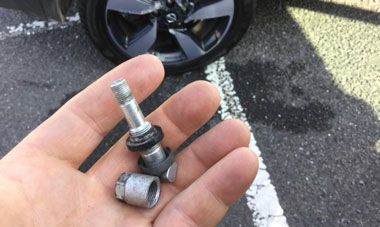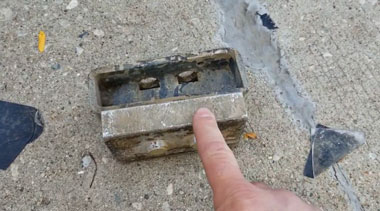
Coupon Code: LA10 to enjoy 10% off on DynoVox.
Understanding DPF Removal: Choosing the Pros and Cons
DPFs are important on modern diesel engines to limit emissions since particulate matter is considered dangerous to health. But the reality is that many car owners encounter certain problems with DPFs, which is why they have emotions about the removal of such systems. This trend has sort of brought about controversies in the automotive industry concerning the issue of performance, environmental effects, and legal ramifications.
Common DPF Challenge
- Frequent regeneration cycles
- Reduced fuel efficiency
- Increased back pressure
- High repair costs
- Performance limitations
These concerns are rather irritating for the car owners with the diesel engines intended for the heavy-duty operation, which leads some of them to consider the DPF removal service.
Exploring Your Options
This guide features the advantages and disadvantages of DPF removal to ensure that you are on the right side when you decide to work on your diesel car.
What You’ll Learn:
- The role of DPFs in modern diesel engines
- The advantages and disadvantages of DPF removal
- Legal and environmental perspectives
- Alternative solutions for DPF-related issues
Understanding DPF Removal: Weighing the Pros and Cons
What Is a DPF?
A diesel particulate filter, or DPF, is a device that has been fashioned to stop soot and any other tiny particles from coming out of the exhaust gas of a diesel engine. Key aspects of its operation include:Aspects of the operation of the companies include:
- Structure: DPFs usually have a honeycomb structure, which may be made of ceramic or metallic alloy.

- Filtration: When exhaust gases pass through the DPF, these are trapped within the wall of the DPF.
- Regeneration: To avoid blockage, the DPF has to be regenerated so as to burn the soot collected inside it.
Advantages of DPF Removal
- Enhanced Engine Performance:
- Increased power and torque (5-15% boost)
- Faster acceleration and better throttle response
- Possible fuel efficiency improvement (1-3 mpg)
- Reduced Maintenance Costs:
- Fewer DPF regeneration cycles
- Less frequent oil changes are due to reduced soot
- Savings from avoiding expensive DPF replacements ($1,000-$4,000)
- Extended Engine Lifespan:
- Lower back pressure on the engine
- Reduced stress on turbochargers and EGR systems
- Lower operating temperatures
- Simplified Exhaust System:
- Fewer components are prone to failure
- Potentially improved exhaust note
Disadvantages of DPF Removal
- Environmental Impact:
- The source-specific prospective increases of particulate matters noticed are as high as twenty times in some cases.
- More NOx or other damaging emissions
- Legal Issues:
- Non-compliance with emissions regulations in many countries
- Severe penalties, including fines and registration issues
- Potential voiding of manufacturer warranties
- Reduced Resale Value:
- Difficulty selling cars with DPF modifications
- Possible need to reinstall the DPF for resale compliance
- Health Concerns:
- Increased exposure to harmful diesel particulates
- Long-term health impacts from elevated emissions
Legal and Environmental Considerations
- Emissions Regulations:
- DPF removal is illegal for on-road use in many jurisdictions.
- Consequences include fines, vehicle towing, and legal actions.
- Inspection and registration:
- Vehicles without DPFs may fail emissions standards.
- Some areas conduct visual inspections for tampering with emissions equipment.
- Warranty Implications:
- Removing the DPF may void manufacturer warranties.
- Engine and emissions-related part warranties might not be honored.
- Environmental Impact:
- DPFs reduce particulate matter emissions by 85-95%.
- Removal significantly increases a vehicle’s environmental footprint.
Off-Road and Racing Use
In some regions, DPF removal is allowed for off-road or racing purposes. However, vehicles may need to be trailered to and from events.
DynoVox’s DPF Delete Pipes
DynoVox offers DPF delete pipes for performance enthusiasts, intended for specific contexts such as off-road and racing use. These products provide:
- High-quality stainless steel construction

- Improved exhaust flow and reduced back pressure
- Professional installation recommended, with potential ECU tuning needed
Conclusion
DPF removal is a complex decision involving multiple factors. While it can improve performance and reduce maintenance costs, it also has significant legal, environmental, and health implications. The decision should be made carefully, considering local regulations and the broader impact on the environment.
For those interested in exploring DPF management solutions or performance upgrades for off-road use, DynoVox provides high-quality products and support to help you make informed choices that comply with legal requirements and environmental considerations.
Coupon Code: LA10 to enjoy 10% off on DynoVox.






































